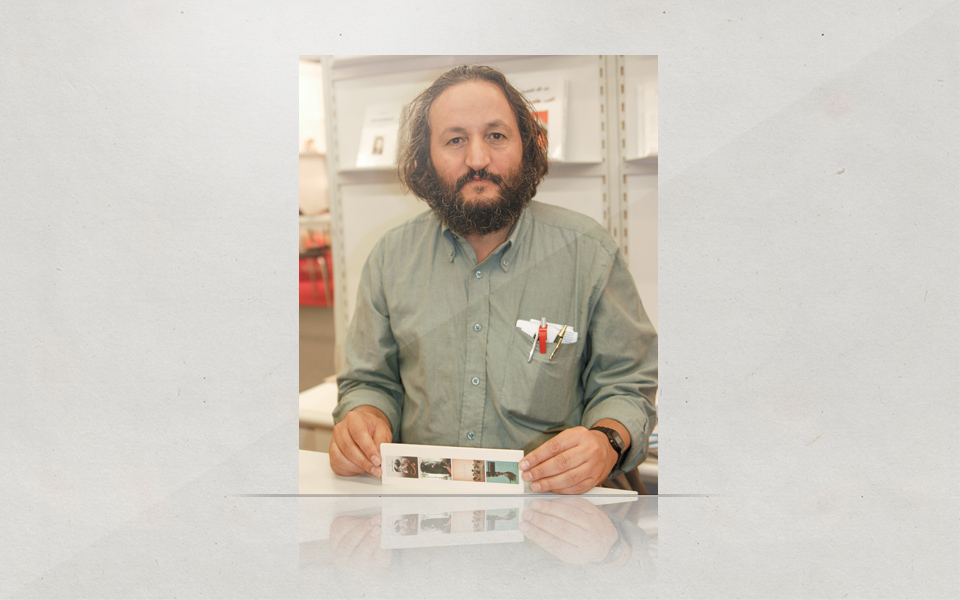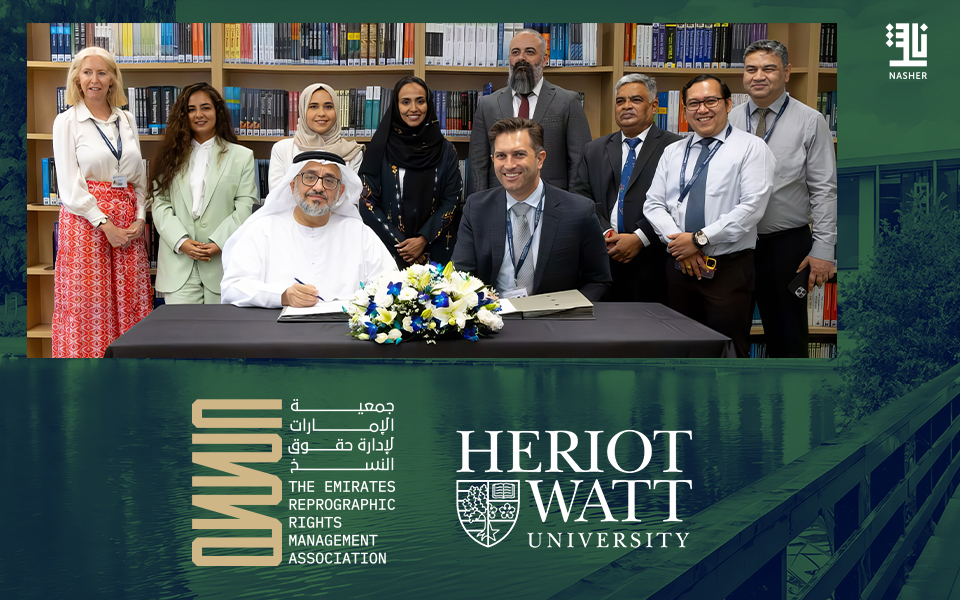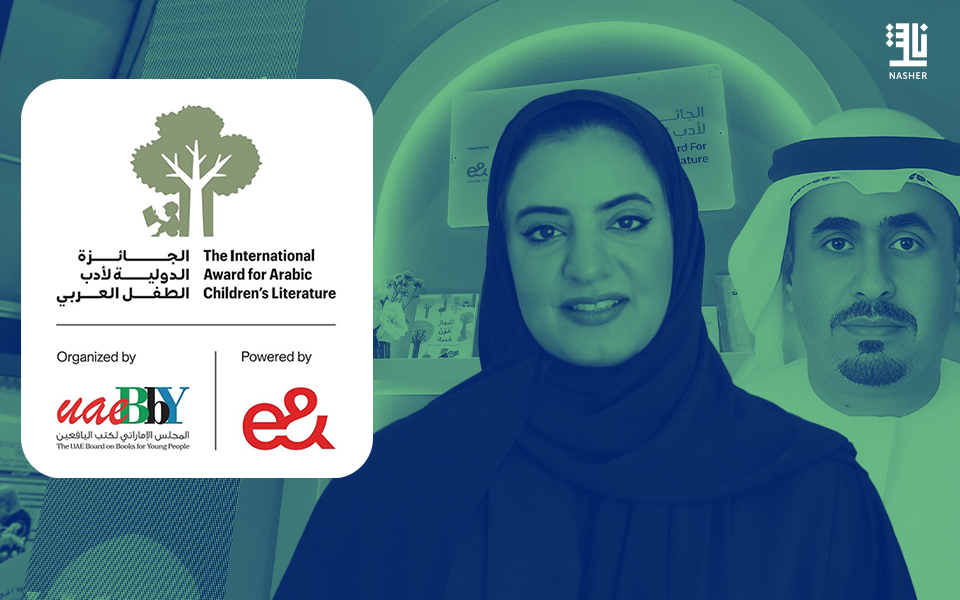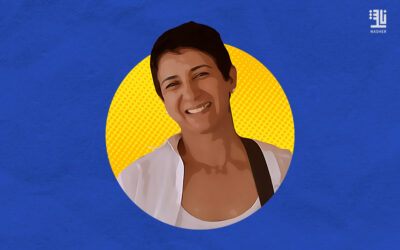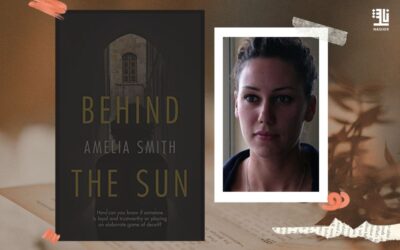Khaled Al Ma’ali: “The worst that happens in Arabic publishing is publishers requiring authors to cover the costs of publishing their books”
An Interview with Khaled Al Ma’ali, Founder and Owner of Al Kamel Publishing
By Fae’ Nasser
When I approached the Al Kamel Publishing pavilion at the 27th edition of the Abu Dhabi International Book Fair to conduct an interview with poet and publisher Khaled Al Ma’ali, founder and owner of the eponymous publishing house, he was busy engaging with authors and readers, so I walked away silently after browsing the collection of titles showcased at his stand.
I told myself that I would probably never again have another opportunity to meet this prolific writer and publisher and talk to him in detail about the publishing house he founded in Cologne, Germany in 1983, with a single printer. Twenty-five years later, the Al Kamel Publishing house he founded has become established as one of the most important publishing houses dedicated to contemporary Arabic literature, prose, poetry, criticism and translated books. In addition to becoming renowned for its Arabic classics, Al Kamel Publishing has earned respect for addressing subjects that are considered taboo and which are censored in certain Arab countries.
All was not lost, however, I was fortunate enough to meet Khaled Al Ma’ali a second time, this time in London, and on this occasion I was able to have an in depth discussion with him over the state of the Arabic publishing industry. During the interview, he was at pains to point out that he is a professional publisher who pays property rights to authors, editors and translators Al Ma’ali explained that his buying of foreign books’ copyrights and translation rights marked him out from those publishers who insist that the author cover the publishing costs. He referred to these publishers as ‘publishing agents.’
What do you mean by some publishers being ‘publishing agents?’
“When I reach a deal with an author to publish a book, Al Kamel Publishing covers the entire costs. This is something that is not found in every Arabic publishing house. The worst thing that is currently happening in the world of Arabic publishing is when publishers ask the author to cover the publishing costs and also include a clause which gives the author the right to take only 30-50 per cent of the value of any prize the book may win. This is very unprofessional and a true scandal in international publishing.”
If an emerging author sends you their first poetry collection or novel, will you publish it?
As a professional publisher, when I read the book, I think of its cultural and economic feasibility, as well as what will it add to the Arabic library and how will it contribute to the Arabic cultural sphere. I might publish a book by an author who is not well known as a writer. No one had ever heard of late Hussein Al Muzani when I published the first collection of short stories and the same can be said about Palestinian author Ebtisam Azem and Tunisian author Ayman Al Dabousi. Being a poet myself gave me some kind of immunity against committing too many mistakes and prevented me from publishing books of little value. I sometimes publish books which I am aware might not be an immediate financial success. I have faith that that they will be discovered and read after critics and the media address them. I am confident that those books that do not make their mark straight away will succeed in the future.
In which Arab countries Al Kamel Publishing sells more books?
Al Kamel’s publications are successful both quantitatively and qualitatively and sell in all Arab countries – this is the reason which drives me to continue my publishing ‘adventures.’ From my experience at book fairs, I can say with full confidence that there is a vast audience of readers from all Arab countries who look forward to buying new books.
Does this mean that you disprove that idea ‘Arabs do not read’?
We need to admit that the rate of reading is generally low in the Arab world when compared to other parts of the globe and there are many reasons for that. However, there are those who I like to call ‘lone readers’ who await new books year after year. At all book fairs, even in unstable countries such as Yemen and Libya, ‘lone readers’ seek to fulfil their ambitions and find specific books. Each time I think that publishing a certain book is an adventure that is doomed to fail, I find a lone reader who is looking specifically for that book. Such readers are the ones who help us publishers without even knowing.
What are the genres that Al Kamel Publishing focuses on?
Vibrant publishing houses are keen to publish all genres of books. Poetry collections, for example, are not marketed strongly by Arabic publishing houses, whereas western publishing houses consider poetry to be fundamental to their output. We do not publish enough poetry compared to prose, which includes Arabic literature, Arabic heritage books and translated books from an array of languages. Al Kamel Publishing aspires to contribute to collecting and distributing knowledge and every year we aim to introduce new cultural and intellectual titles to Arabic readers that have never been published before. This year, we are highlighting Iraqi Poet Ibn Al Hajjaj Al Baghdadi from the fourth Hijri century (913-1010 AD). We are publishing his complete collection of poetry in four volumes (2,000 pages) edited and annotated by Iraqi researcher Sa’ed Al Ghanimi, winner of Sheikh Zayed Award, who explains Baghdad’s colloquial vocabularies in the fourth Hijri century. Al Kamel publishing prides itself on verifying and restoring some heritage books which have been subject to omission, distortion and misrepresentation, which is what we have done with the poetry collection of Safi Al Dine Al Hilli (677-752 H/1277-1339 AD).
Is Al Kamel Publishing pressured not to publish certain books, and are some of its published books banned from participating in Arabic book fair?
Yes, the ban aligns with some countries according to their political environment. Certain countries have their own clear book-bans and as publishers we have to respect the rules and abide by their laws. Occasionally a ban happens suddenly during a book fair and we are not informed about it until the very last second, resulting in the process becoming a hubbub without any discipline. In recent years, however, the situation has become less muddled, as most book fairs in the Arab world are now able to inform publishers about banned books in advance.
If a novel published by Al Kamel wins a prestigious literary prize or award, like for example ‘Frankenstein in Baghdad’, does it contribute to boosting Al Kamel’s publications morally and financially?
To tell the truth, Arab awards do not contribute to promoting books, except perhaps the International Prize for Arabic Fiction (IPAF), which is also known as the Arabic Booker. Once a novel is long-listed for IPAF, a second edition of that novel will be printed immediately and if it is short-listed, the novel will see more editions printed. If a novel wins the prize, the sales will increase significantly, which of course benefits the author, the publisher and the distributor.
How does Al Kamel get foreign books’ translation rights?
The translation rights differ from one publisher to another and from one author to another. Sometimes we need to deal with the authors directly because they are interested in verifying the translation of their books and making sure that they are not misunderstood, something for example that happens with French writer Gilbert Sinoué. However, in general we deal with the publishers of books. I recently, bought copyrights from the biggest literary agency specialised in Latin American literature, which is based in Barcelona, and I also purchased a number of copyrights from contemporary authors before translating their books. All these deals have been authenticated through legal contracts.
Which books achieve more success and fame, Arabic books or translated books into Arabic?
Each book is special and unique. There are Arabic novels which achieve remarkable success compared to other equally as important Arabic books and the same applies to translated books. A book’s fame and success is subject to its reading market.
Why did you move the Al Kamel Publishing from Germany to Beirut, and where do you classify it among Arabic publishing houses now at the 25th anniversary?
We moved to Beirut for practical reasons. I wanted to be close to the Arab world to be able to start marketing and selling books effectively. Lebanon is a country that has all the key factors for a successful publishing industry; such as excellent facilities for book and cover design, printing and editing. This enables me to publish books and sell them in the Arab world at a reasonable cost. A successful publishing house has to have an economic plan and a financial budget to sell books to middle-income readers at an affordable price. Where do I classify Al Kamel Publishing after all these years? Well, I am not really interested in classifications! What stirs my soul are the books that I will publish in the future.
Which is the most important book fair in the Arab world, and is there a book fair which is so dear to your heart?
Each book fair has its unique and special features. Sharjah international Book Fair is one of the most successful of such events in which I participate and I am always happy to see the extensive participation of publishers and visitors alike there. I will also never forget Germany’s first Arab Book Fair, which I attended as a young and emerging publisher in 1994. I was granted a free pavilion at the event, which continued for a couple of years, and it holds special memories for me because it was the starting point of my dealings with the Arab world’s book industry.

